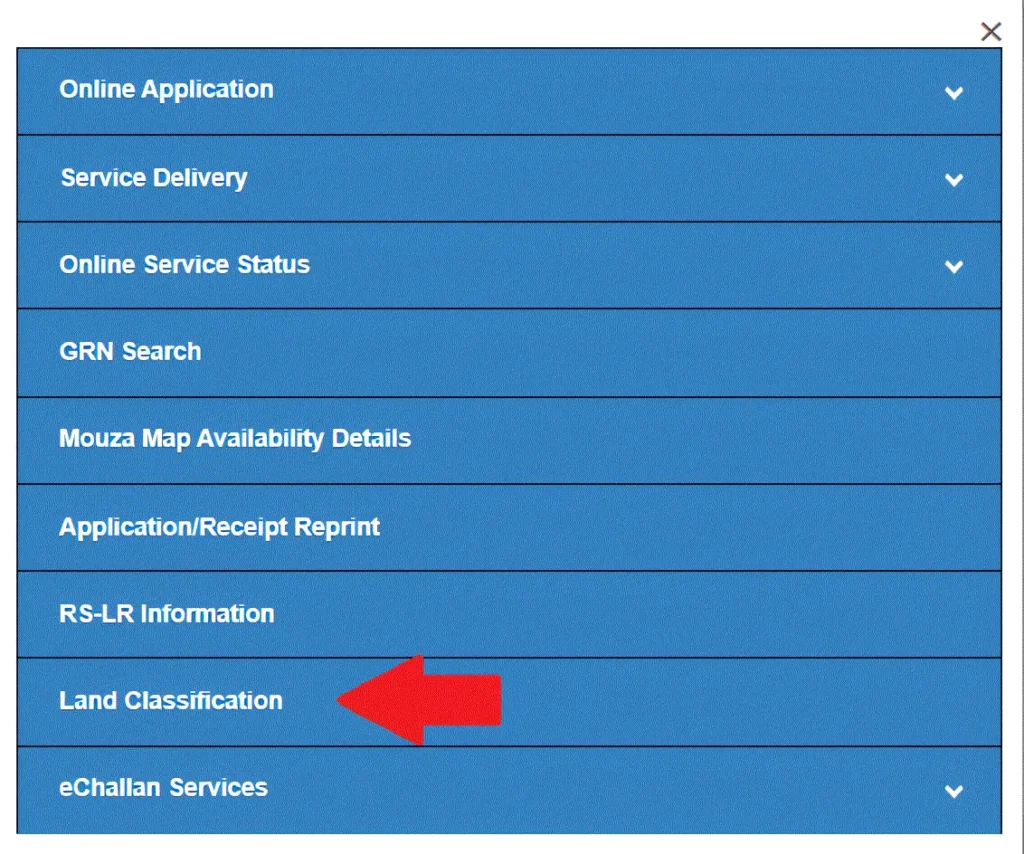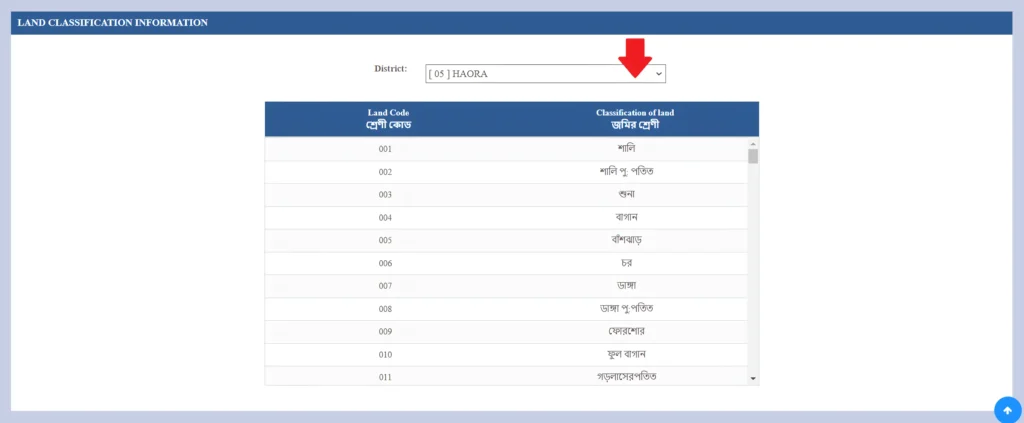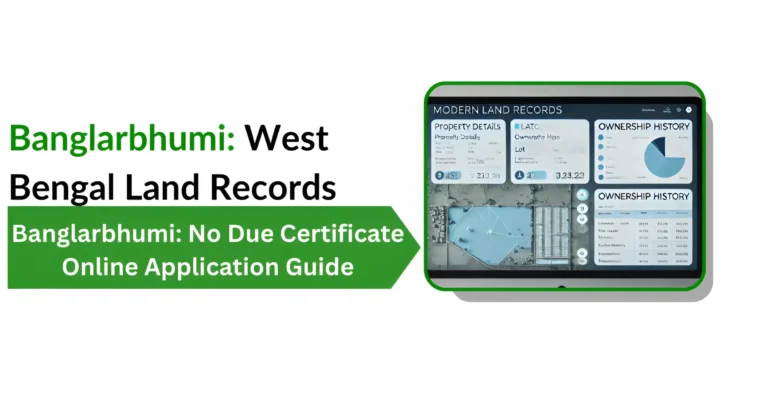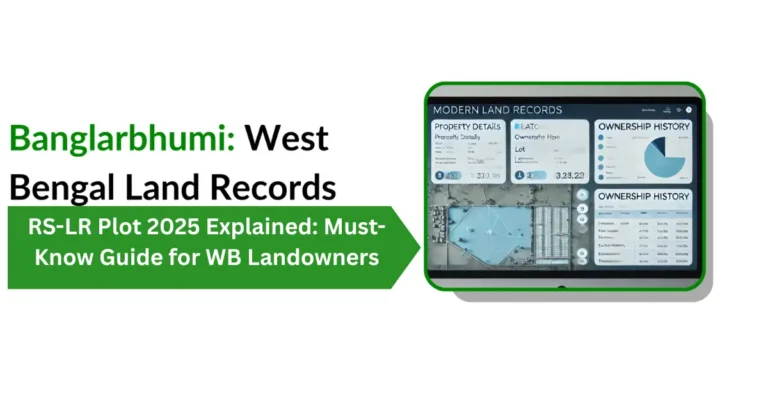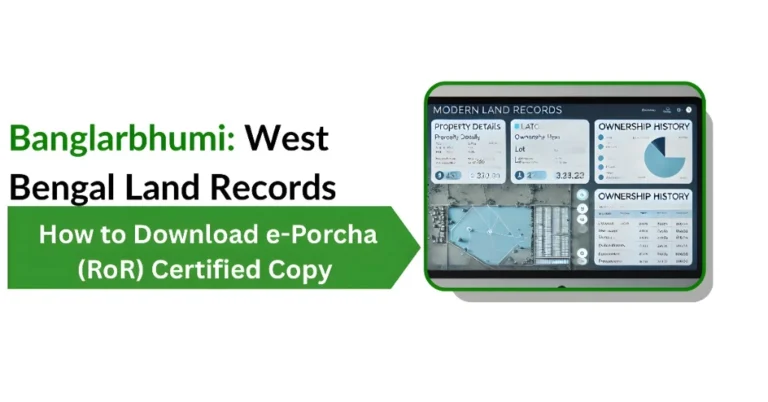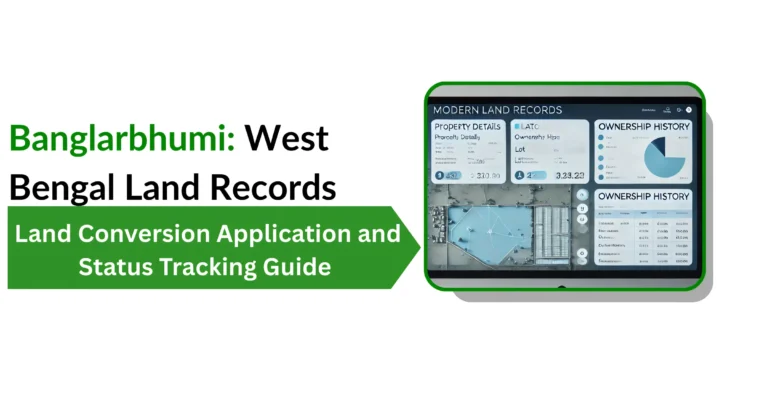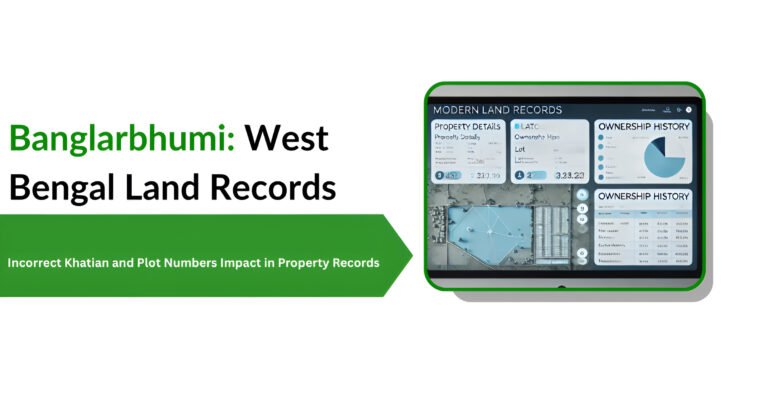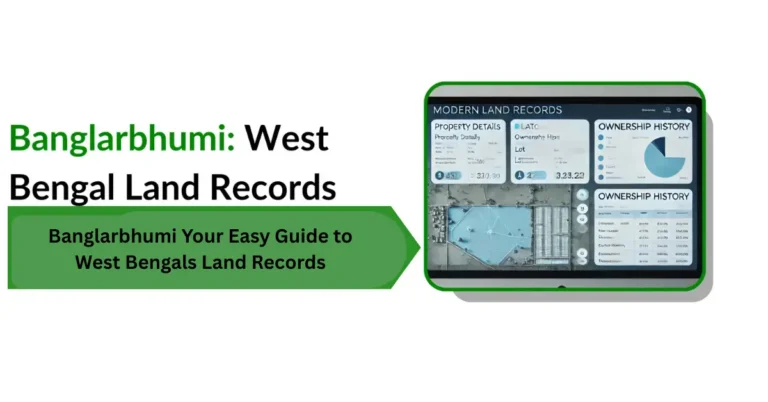Banglarbhumi:Land Classification information in West Bengal
Understanding land classification is key for property management and transactions in
West Bengal. The Banglarbhumi portal offers an easy way to access land classifications, which categorize land based on its use, ownership, and legal status. This guide covers how to check your land classification and the common types of land classifications.
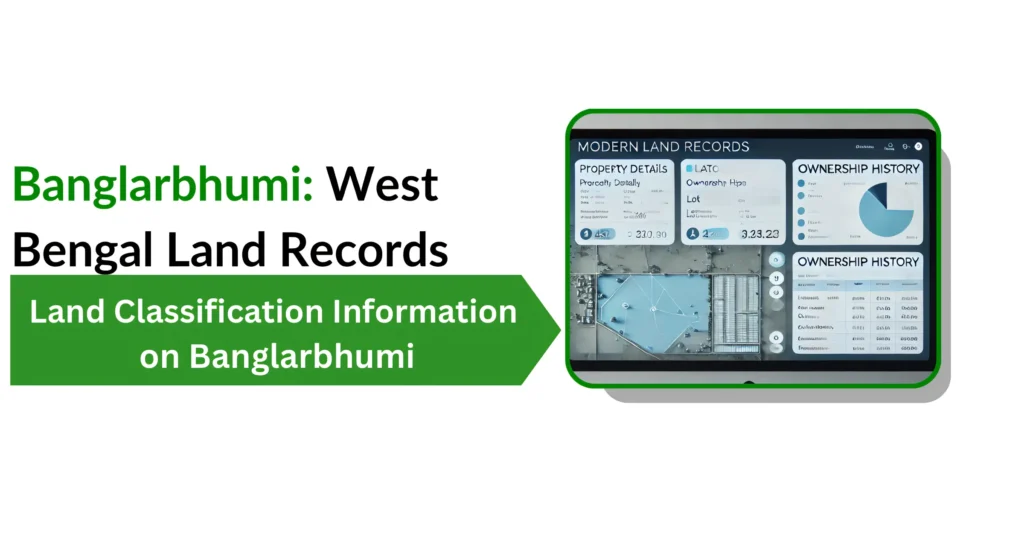
What is Land Classification?
Land classification refers to the categorization of land based on its intended use, legal status, and ownership. The Banglarbhumi portal classifies land into various categories like agricultural, residential, commercial, and government land. These classifications determine how the land can be used, what taxes apply, and whether there are any restrictions on land development or transactions.
Common Land Classifications on Banglarbhumi
Banglarbhumi categorizes land into different types such as agricultural, residential, and commercial for record purposes. These classifications help citizens understand land use and legal status in West Bengal.
Agricultural Land
Residential Land
Commercial Land
Government or Institutional Land
Government or Institutional Land
Why Land Classification Matters
Land classification dictates what rights you have over the property. For example, agricultural land cannot be developed for non-agricultural purposes without proper approval, which could lead to penalties if ignored.
Different classifications come with varying tax rates. Agricultural land typically enjoys tax exemptions or reductions, whereas commercial land may be taxed at a higher rate due to its revenue-generating potential.
Each land type has associated zoning laws that must be adhered to. Residential lands may have restrictions on the height and design of buildings, while commercial lands must follow different standards regarding infrastructure and safety measures.
Knowing your land’s classification helps in understanding its potential for development. For example, converting agricultural land to residential or commercial use requires approval from the relevant authorities, and this conversion comes with a cost.
How to Check Land Classification on Banglarbhumi
To check your land’s classification, follow these simple steps:
Log In or Register:
If you already have an account, log in with your username and password. New users will need to register by providing their details, including a mobile number and email for verification.
Navigate to ‘Citizen Services’
Once logged in, hover over or click on the ‘Citizen Services’ tab.
Select ‘Land Classification’
From the dropdown menu under ‘Citizen Services’, click on ‘Land Classification’.
Enter Land Details:
Enter the required information such as district, block, and mouza. Alternatively, you can search using the Khatian or plot number.
View the Land Classification Information:
Once the information is submitted, the portal will display the classification details of the land, including whether it is agricultural, residential, commercial, or government land.
Land Classification and Conversion: What You Should Know
Using Banglarbhumi Mobile App for Land Classification
For added convenience, you can also check land classification via the Banglarbhumi Mobile App:
Download the App: Available on both Google Play Store and Apple App Store.
Log In: Use your credentials to log in to the app.
Access ‘Land Classification’: Navigate to the ‘Citizen Services’ section and select ‘Land Classification’.
View Classification: After entering the necessary details, you can view your land’s classification directly on your mobile device.
FAQs
Final Thoughts
Understanding your land’s classification is key to making informed decisions about its use, development, and taxes. The Banglarbhumi portal offers a simple way to access this information, helping you navigate legalities, zoning laws, and taxes. Always check your land’s classification before any development or transaction, and consult authorities for clarification if needed.


